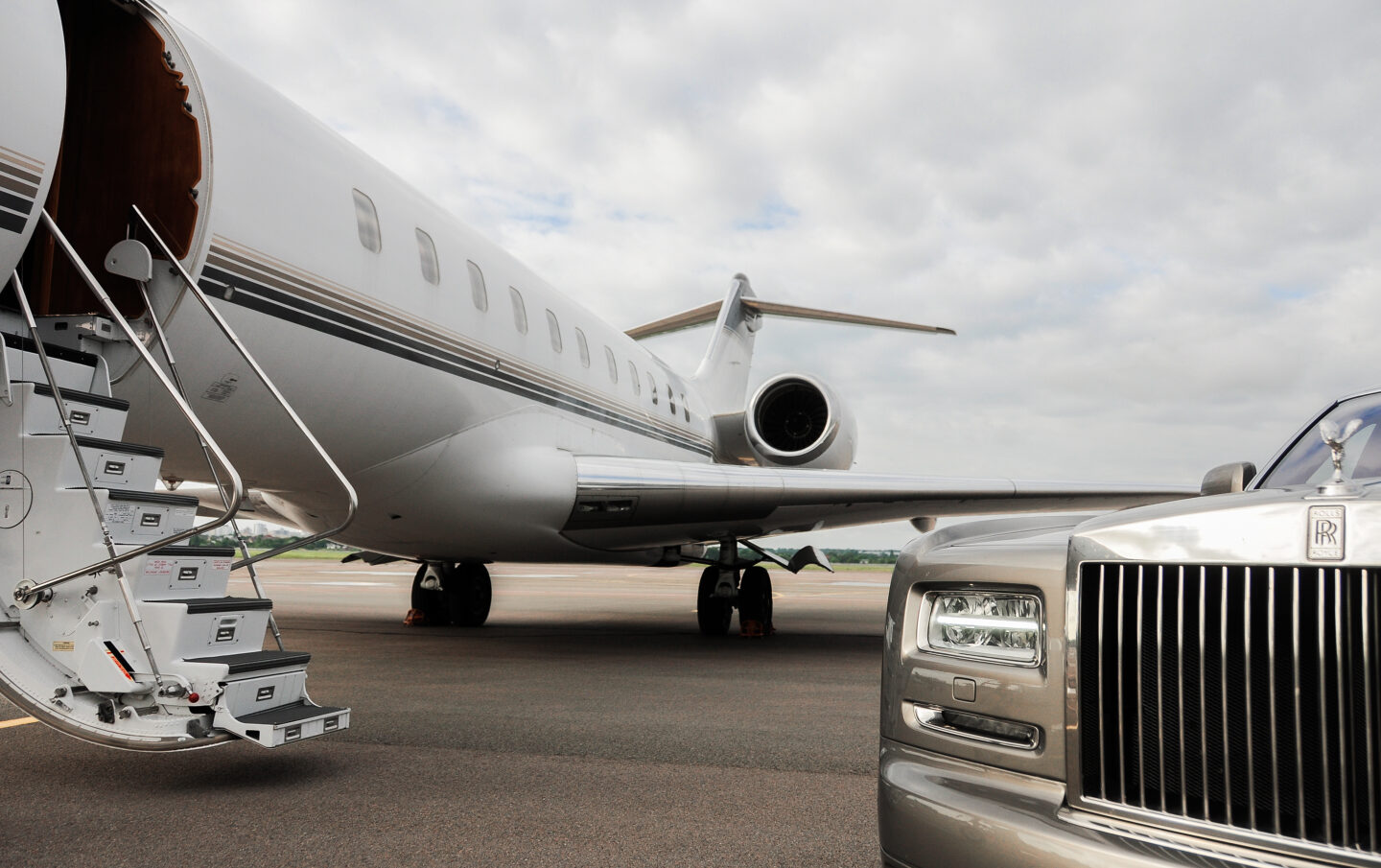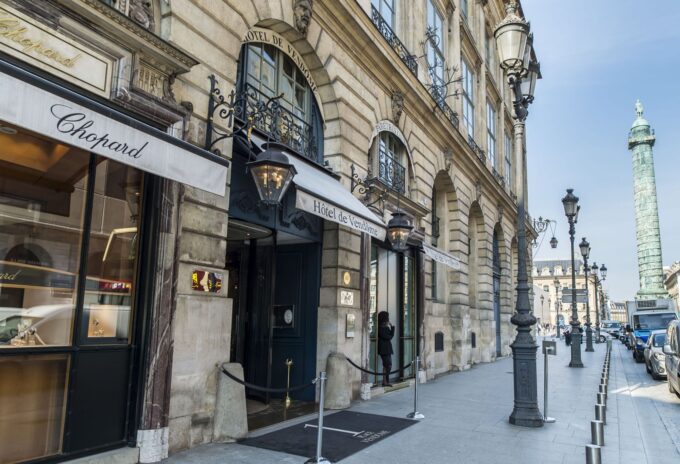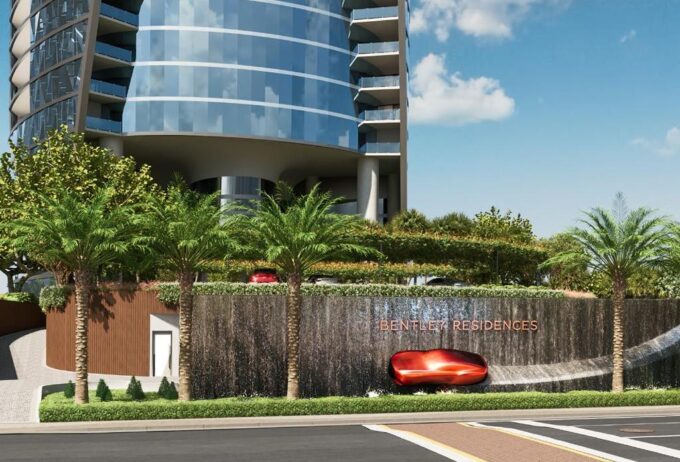
Why future-facing luxury brands must favor excellence over perfection
What does it mean to be excellent, not perfect, in 2024, and why should luxury brands weave the answer into their strategy? ...

by Stéphane J. G. Girod, Vanessa Signorini Published 14 December 2023 in Luxury • 8 min read
The end of lockdown restrictions following the COVID-19 pandemic created a renewed thirst for freedom and travel. In the world of luxury, affluent customers are increasingly seeking more meaningful connections with the brands they engage with, experiences that are highly curated, personalized, and centered around special moments with their families or friends. These trends are key to how companies position themselves in a highly competitive market.
Today, ultra-high-net-worth individuals spend more than many other demographic on one-of-a-kind experiences, seeking out exclusive private or branded residences and having their every whim catered to by teams of expert professionals.
Demand is higher than it’s ever been, but this also means that many luxury brands are looking for new ways to speak to their customers outside of their stories to build new relationships, meaning brands are adding more experiential elements to their offering that not only include additional services that excite and amaze, but involve a deeper layer of connection that allows consumers to engage with them as an expression of their own identities and values.
During the Luxury Disruptor Talks in 2023 organized by the IMD Luxury 2050 Forum, James Henderson, CEO of Exclusive Resorts, Attilio Marro, Senior Director at Bulgari Hotels and Resorts, and David Branch, IMD Luxury 2050 Advisory Committee Member and Principal at STONE Branded Residences Advisory, discussed the current trends reshaping the market, the risks and rewards of diversifying, and what drives success in luxury hospitality.
There has never been a better time to be operating in luxury hospitality. International tourism looks set to recover to almost 90% of pre-pandemic levels by the end of this year and the latest data from the United Nations World Tourism Organization (UNWTO) shows that an estimated 975 million tourists traveled internationally between January and September this year – a rise of 38% compared to the same period in 2022.
In addition, global luxury hospitality is expected to grow by 17% in 2023, according to the latest luxury market update by Bain & Company and Altagamma, reaching €213 bn in 2023, presenting an irresistible opportunity for luxury companies to consider diversifying their brands into different lifestyle and hospitality projects.
It is little surprise, therefore, that maturing luxury goods companies are seeking new growth pathways in the hospitality space. In November, luxury jewelry and watch brand Chopard opened its first-ever hotel in Paris, 1 Place Vendôme. Positioned as an “anti-hotel,” the property is only open to Chopard’s VIP clients and guests who stay at the residence, which has just 10 suites and five rooms.
The move follows in the footsteps of luxury watchmaker Audemars Piguet which also recently opened up a hotel called Hôtel des Horlogers in the Vallée de Joux in Switzerland, and luxury shoemaker Christian Louboutin, which also opened a hotel named Vermelho in Melides, Portugal.
Likewise, the trend of luxury companies expanding into branded residences is also growing rapidly. Real estate advisor Savills says the sector has grown by 150% in the last 10 years and it believes the pipeline for branded residences in the future remains strong. It estimates this will double in size by 2027, driven by an influx of prospective buyers around the world in locations like New York, London, and Dubai, as well as other countries like Poland and Guyana.

“From an experiential luxury standpoint, there’s a big trend with fashion brands, luxury brands, car brands, and design brands which have already launched projects,” said Branch. “I’m talking about residential projects, but also other things which are experiential like restaurants, beach clubs, and hotels. Branded residences are an extension of that.”
But gone are the days of only offering travelers the chance to “fly and flop” onto a sun lounger in a luxury resort. In its place are trips to the Galapagos Islands or tickets for the Venice Simplon Orient Express, and private residences that offer services and amenities akin to that of a five-star hotel. The wealthy want more.
The changing values of the luxury traveler are a large driver of why luxury brands are pursuing hospitality projects. As travel becomes more important as a social currency, particularly in the age of social media, people are increasingly seeking out experiences and transformation, said Henderson.
“We see a lot of people wanting that element of community. They want to have experiences that will change their mindset and want to do things that they can share with close family and friends, and connect with like-minded people. I think this is why we’re seeing the shift towards experiences,” he noted.
“They’re less materialistic,” added Henderson. “They are much more focused on uniqueness and individuality. They want to connect with brands that they feel resonate with their identity and speak their values.”
It’s a view shared by Marro. “It is common knowledge that we are going towards an experiential economy. After COVID, and in a world dominated by social media, the process has accelerated, and “carpe diem” experiences are a stronger priority than ever before,” he said.
“How longer this is going to last, we don’t know,” he added. “But for sure, we’re seeing that the more we deliver and the more services we add, the more people are willing to spend.”
With so many luxury brands from different sectors making the leap into hospitality, it can be deceiving to think that such a move is seamless, particularly when presented with the opportunity to make a deeper impact with your customer inside a standalone space that wholly defines the brand.
On the one hand, it can open up your brand universe to include new segments of customers. Moreover, as Marro explained, luxury goods brands are doing it because they feel the limit of the experience they can deliver in their stores. “There is a consensus that adding a hospitality experience to what we can offer in our stores strongly enhances brand visibility and customer engagement.” One could even think that the store has become banal, so capturing hearts and minds needs to happen somewhere else. Seen from this lens, hospitality is the next frontier of ‘clienteling’.
To do it well, Marro explains, brands extending into hospitality also need to think that their hospitality supports the brand, not the other way around. Projecting the values of the brand, rather than mimicking the look and feel of the stores in the hotels and resorts, is what matters more, at least for Bulgari.

Moreover, luxury goods brands entering this space risk exposing their whole brand – and, if their ventures are not properly thought-through, potentially damaging it.
“It’s challenging, because the brand is more exposed,” Marro added.” It is important to be disciplined when you diversify into a field that is not your core business to avoid any risk of damaging the brand rather than enhancing it.”
For Bulgari, that meant teaming up with the right partner in the luxury division of Marriott Hotels, a relationship that has lasted more than 20 years.
“Some brands have approached this as some kind of licensing, which can be dangerous,” said Marro. “You need to devote the brand’s full focus on such projects daily and partner with experts in the field. The combination of skills between somebody great at hospitality and somebody great at creating luxury products is the recipe to deliver excellence”.
So, how can brands ensure they are successful in such a competitive environment? How do they drive engagement, stickiness, and retention? And get people to come back to your brand time and time again?
In branded residence, say if you buy in the Bentley or Aston Martin towers, there is also the split of responsibility between the brand, the developer and the residence association of the owners, who ultimately might end up running the residence, with various successes. If not properly designed, these types of brand licensing might damage the luxury brand, as Branch explained.
“You do it by having a brand that people resonate and connect with,” said Henderson. “It’s something they understand. Obviously, you have to deliver in terms of that experience and service. But there must be other elements to bring people back to that level of connectivity.”
The discussion concluded with what could happen as a result of the growing need to shift to positive impact economies and societies. If less impactful jet and cruise fuels are not available, tourism will continue to have a highly negative impact on our environment. In 2022, the World Inequality Report stated that the wealthiest 1% of the world population generated 65% of greenhouse gas emissions and the top 10% added another 18%.
Although Marro and Henderson explained how their brands are actively engaged in shifting to renewable energies in their hotels and resorts, sourcing much more locally and supporting local communities, will that make the cut as the volumes associated with world tourism continue to grow?
Recruiting and retaining talents in the hospitality industry, particularly in advanced economies, will continue to be a problem. But as Marro concluded, if you have a good company culture, strong values, and respect toward your staff, you will be able to recruit no matter what. For instance, despite being in a city short of chefs, Bulgari succeeded in recruiting 70 for their recent opening in Rome.
This webinar was organized by the IMD Luxury Forum 2050, a community that joins forces to share experiences, learning, and views of the future of luxury in a trusted environment and addresses the challenges and transformations of luxury brands.
You can learn more about the Forum here.

Professor of Strategy and Organizational Innovation
Stéphane J.G. Girod is Professor of Strategy and Organizational Innovation at IMD. His research, teaching and consulting interests center around agility at the strategy, organizational and leadership levels in response to disruption. At IMD, he is also Program Director of Reinventing Luxury Lab and Program Co-Director of Leading Digital Execution.

Executive Board Member and Co-Founder, IMD Luxury 2050 Forum
Vanessa Signorini (IMD Executive Program Marketing Management II 2016) is an expert in luxury business. She co-founded and serves on the Executive Board of the IMD Luxury 2050 Forum. In 2013, she founded Darling Chérie Jewellery, a firm that operates in the Luxury Goods & Jewelry industry.

27 March 2024 • by Stéphane J. G. Girod, Roberto Eggs, Rui Meng in Luxury
What does it mean to be excellent, not perfect, in 2024, and why should luxury brands weave the answer into their strategy? ...

14 February 2024 • by Stéphane J. G. Girod, Jana M. Arden, Barbara Rybka in Luxury
With the global economy facing its slowest growth in three decades, luxury brands are facing challenges from shifting consumer behaviors to geopolitical tensions. Navigating them requires innovative approaches to digitalization at scale....

23 December 2023 • by Stéphane J. G. Girod in Luxury
Luxury brands must ensure they are agile and flexible enough to respond to the uncertainties they face....

12 December 2023 • by Howard H. Yu in Luxury
As the latest IMD Future Readiness Indicator is published, we take a close look at the pioneers and innovators setting the stage for 2024. ...
 Audio available
Audio availableExplore first person business intelligence from top minds curated for a global executive audience